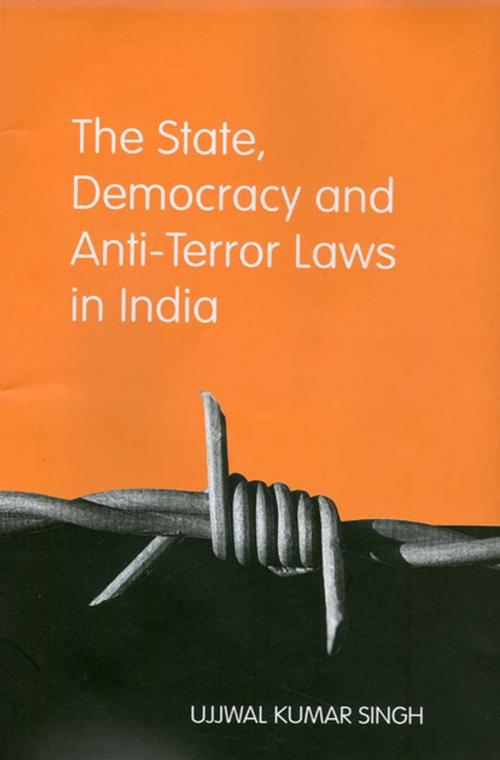The State, Democracy and Anti-Terror Laws in India
Nonfiction, Social & Cultural Studies, Political Science| Author: | Ujjwal Kumar Singh | ISBN: | 9789352800766 |
| Publisher: | SAGE Publications | Publication: | January 11, 2007 |
| Imprint: | Sage Publications Pvt. Ltd | Language: | English |
| Author: | Ujjwal Kumar Singh |
| ISBN: | 9789352800766 |
| Publisher: | SAGE Publications |
| Publication: | January 11, 2007 |
| Imprint: | Sage Publications Pvt. Ltd |
| Language: | English |
Laws like the Prevention of Terrorism Act (POTA) are enacted to address what the state describes as extraordinary situations and put in place exceptions to the ordinary legal and judicial procedures. By examining public debates surrounding extraordinary laws like POTA and the Terrorist and Disruptive Activities (Prevention) Act (TADA) and also specific cases, trials and judgements under the Acts, the author
- argues that extraordinary laws have ramifications for people’s lives, political institutions, the rule of law and democratic functioning;
- shows how such laws assume ‘normalcy’ and acquire a place of permanence in state practices; and
- examines the ways in which such extraordinary laws manifest dominant configurations of political power and ideology.
While exploring the unfolding of POTA in specific contexts, the book shows how the law was enmeshed in the politics of Hindutva, electoral and coalition politics, centre-state relations, the politics of repression and reconciliation against nationality struggles, and issues of poverty and development.
Laws like the Prevention of Terrorism Act (POTA) are enacted to address what the state describes as extraordinary situations and put in place exceptions to the ordinary legal and judicial procedures. By examining public debates surrounding extraordinary laws like POTA and the Terrorist and Disruptive Activities (Prevention) Act (TADA) and also specific cases, trials and judgements under the Acts, the author
- argues that extraordinary laws have ramifications for people’s lives, political institutions, the rule of law and democratic functioning;
- shows how such laws assume ‘normalcy’ and acquire a place of permanence in state practices; and
- examines the ways in which such extraordinary laws manifest dominant configurations of political power and ideology.
While exploring the unfolding of POTA in specific contexts, the book shows how the law was enmeshed in the politics of Hindutva, electoral and coalition politics, centre-state relations, the politics of repression and reconciliation against nationality struggles, and issues of poverty and development.















